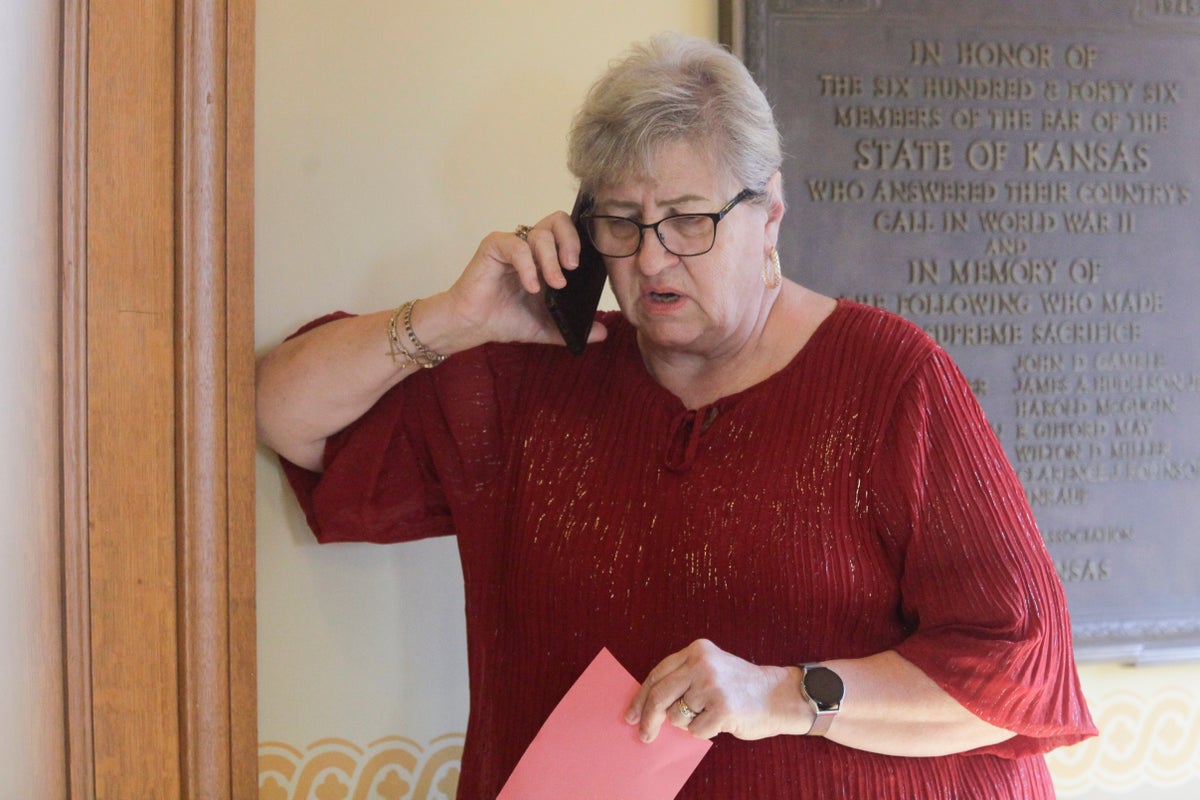
Kansas' governor has vetoed legislation that would mandate clinics to tell patients that a medication abortion can be interrupted using an unproven drug regimen.
Democratic Gov. Laura Kelly vetoed the bill Wednesday, again pushing back state GOP efforts to restrict abortion despite a decisive statewide vote affirming abortion rights last year.
The governor's action marked the second time this month that she vetoed an anti-abortion bill approved by the GOP-controlled Legislature.
Last week, she rejected a measure that could subject doctors to criminal charges and lawsuits if they are accused of not providing enough care for infants delivered alive during certain abortion procedures, even if they are expected to die within seconds outside the womb because of a severe medical issue.
The vetoes mean that abortion access and providers in Kansas remain far less restricted for now compared to other states with GOP-controlled legislatures that have banned or severely restricted abortion procedures over the past year.
Abortion opponents in Kansas had the two-thirds majorities that will be necessary to override the veto of the bill on medical treatment for infants delivered alive during abortion procedures.
But Republican lawmakers may be able to override the bill vetoed on Wednesday in a vote later this month. If they do, patients asking for a medical abortion would get a state-mandated, written notice that they can interrupt their abortion, even though the American College of Obstetrics and Gynecology says there is no scientific evidence that the “reversal” approach promoted by abortion opponents is safe or effective.
Abortion rights supporters contend both measures break faith with voters.
“We were told that we must listen to the people,” Kansas Senate Democratic Leader Dinah Sykes said before her chamber passed the bill earlier this month, recalling the campaign ahead of the statewide vote in August 2022. “Nearly 60% of Kansans — Democrats, Republicans and independents — voted ‘no’ on giving elected representatives and state senators more power to pass laws regarding abortion.”
Even if Kansas lawmakers override Kelly’s vetoes, providers could ask state courts to block the new laws. Lawsuits have prevented Kansas from enforcing a 2015 ban on a common second-trimester abortion procedure and a 2011 law from imposing extra health and safety rules on abortion providers.
Kelly also vetoed an abortion medication “reversal” measure in 2019.
Supporters of the so-called “abortion reversal” notification requirement cite individual women's cases to bolster their claims, but Kelly told lawmakers in a message in 2019 that the notification mandate represented “a government mandate that is not adequately supported by medical science.”
“The practice of medicine should be left to licensed health professionals, not elected officials,” she said in her 2019 veto message.
A least a dozen states enacted abortion “reversal” bans before the U.S. Supreme Court's decision in 2022 allowing states to prohibit abortion, though legal challenges put four states' laws on hold.
But in Kansas, the state Supreme Court ruled in 2019 that access to abortion is a matter of bodily autonomy and a “fundamental” right under the state constitution. The vote last year rejected stripping out that protection.
Republican lawmakers and anti-abortion groups contend the vote last year doesn’t preclude “reasonable” abortion restrictions or rules for providers like the “reversal” bill.
“Basically, it's saying if you are a woman, if you are seeking an abortion, you do have the right to know that the is such a thing as APR, abortion pill reversal," state Senate health committee Chair Beverly Gossage, a Kansas City-area Republican, said before her chamber approved the measure earlier this month.
A majority of U.S. patients terminating their pregnancies do so with abortion medications. Since the U.S. Supreme Court's decision last year, abortion opponents have sought to undercut access to the pills. The U.S. Supreme Court is considering the legal status of mifepristone, the first of two medications in the most common and most effective method.
The abortion “reversal” approach promoted by Kansas lawmakers involves giving women doses of the hormone progesterone after mifepristone is taken but before the second medication, misoprostol, is taken. Doctors use progesterone to try to prevent miscarriages.
Experts question the findings of the two anti-abortion doctors who began using the off-label “reversal” approach more than 15 years ago and see a 2018 study vouching for its effectiveness as seriously flawed. Republican lawmakers in Kansas have brushed aside the criticism.
“Medical knowledge is passed within our profession very much like political knowledge is passed here, peer to peer,” Republican state Rep. Bill Clifford, a southwestern Kansas eye doctor, told his colleagues during one recent debate. “It isn't always about studies, and you have to trust your colleagues.”







